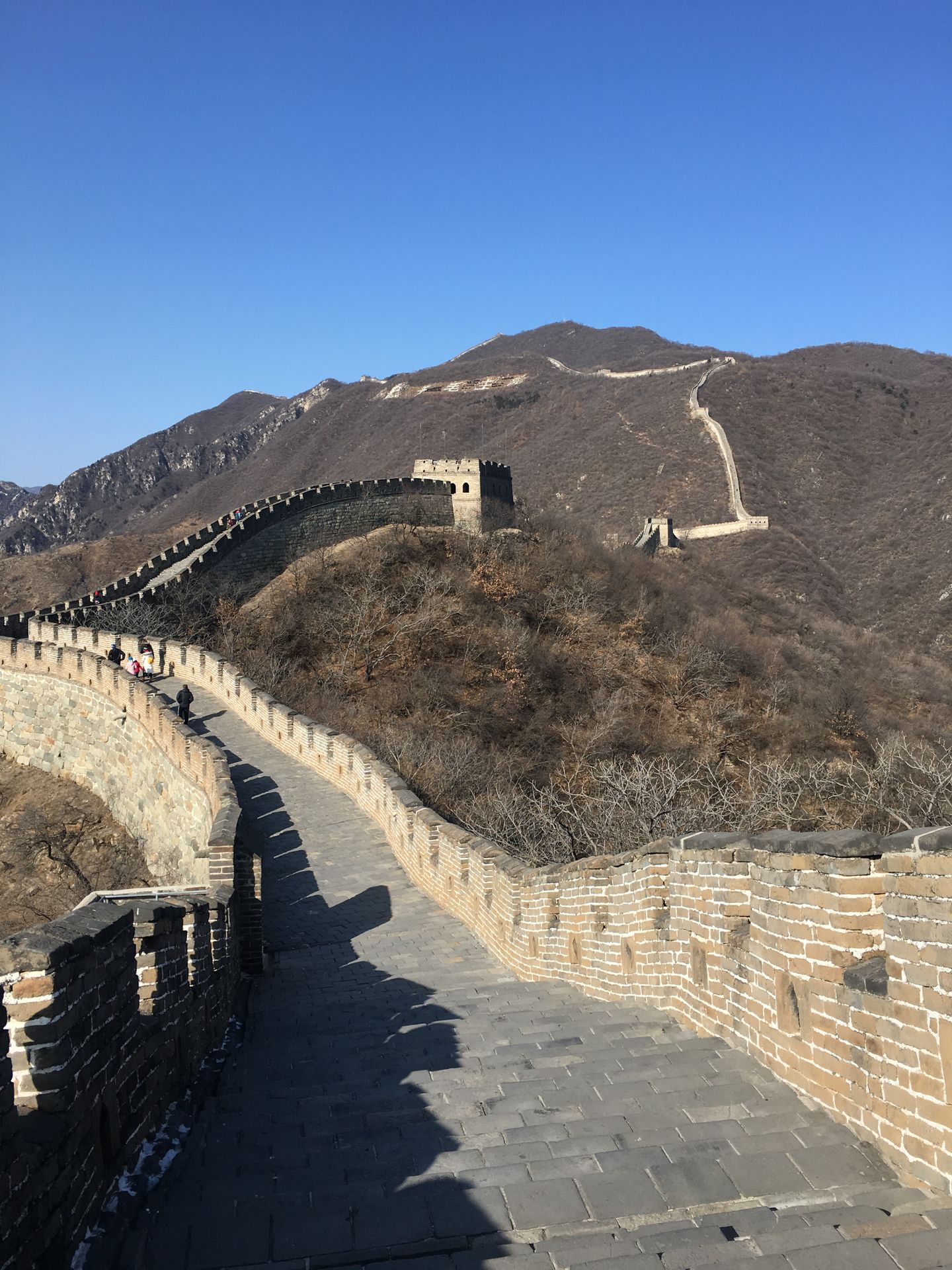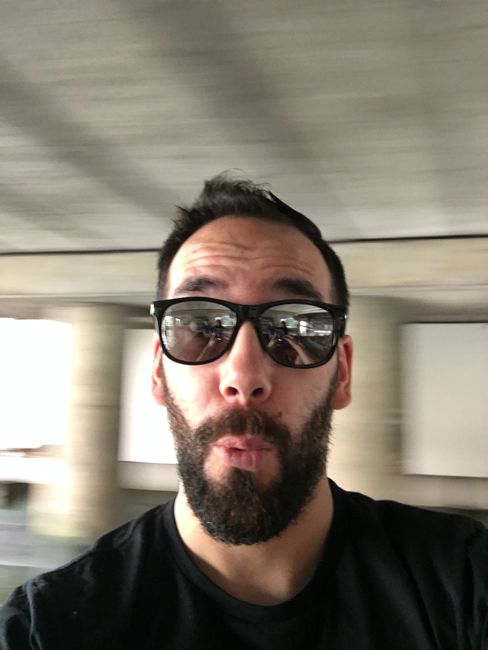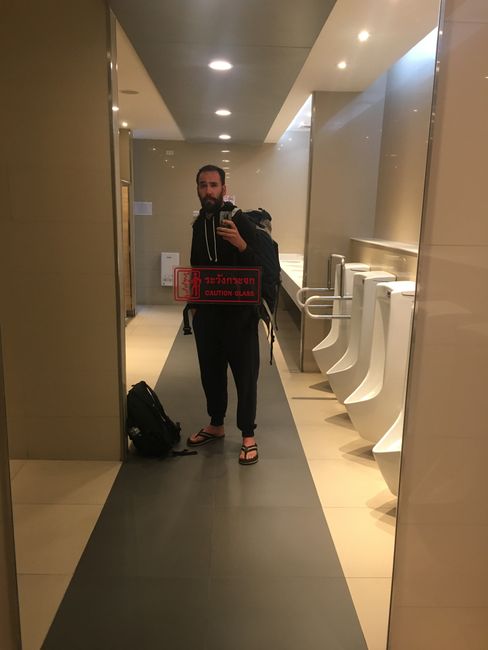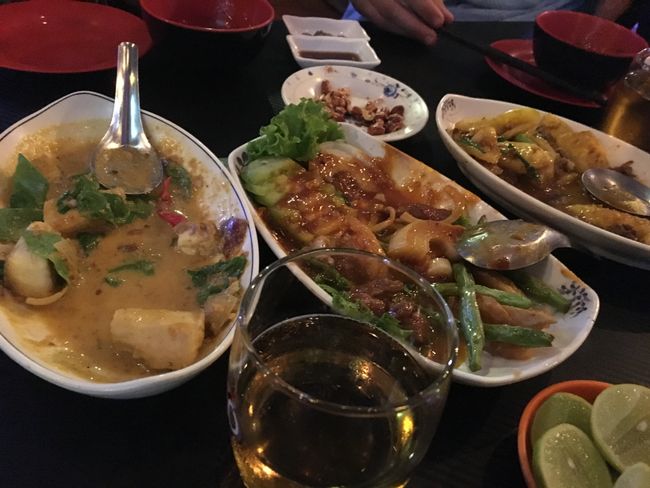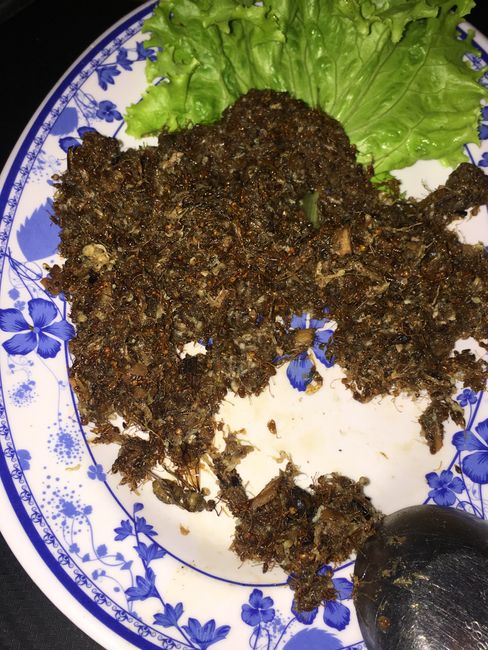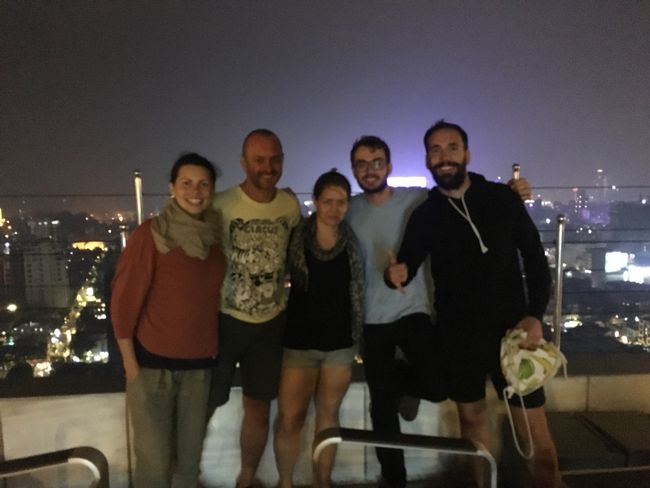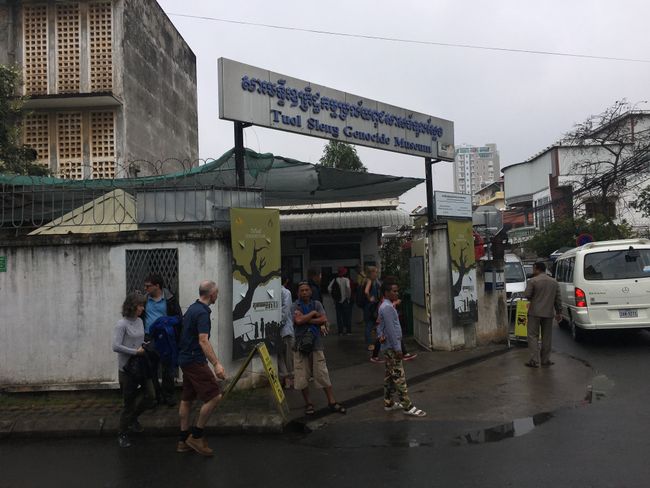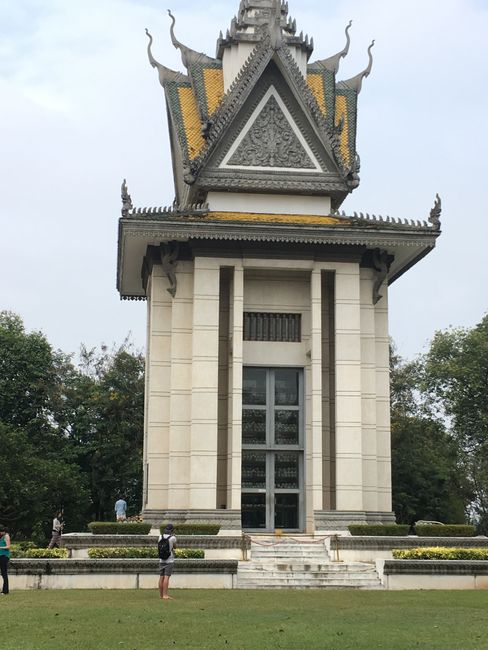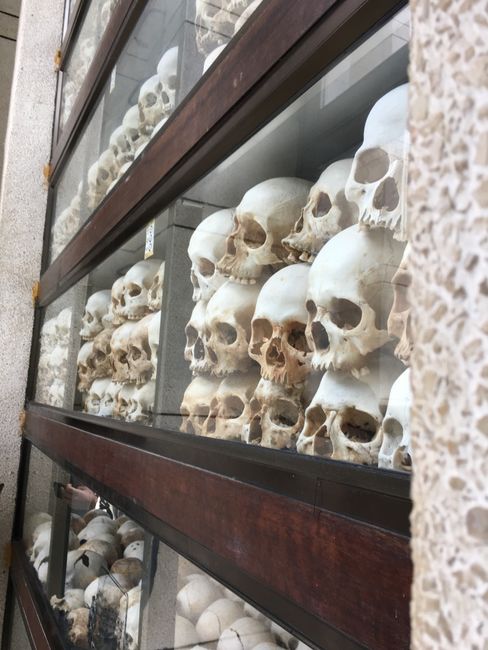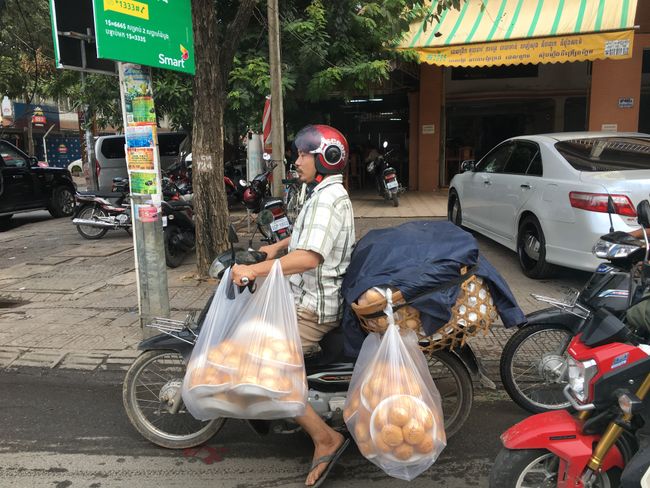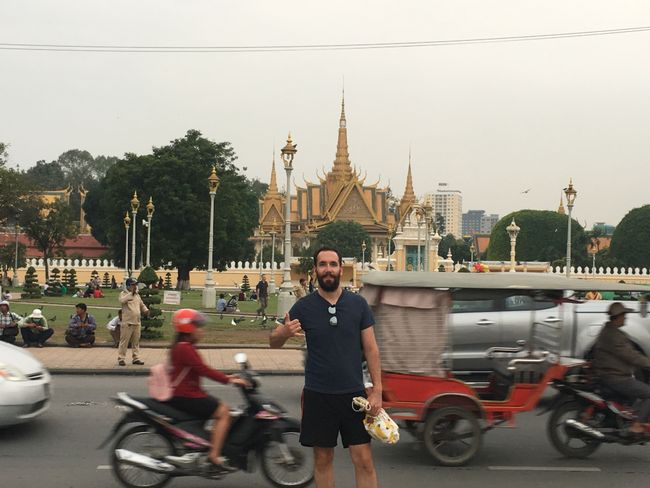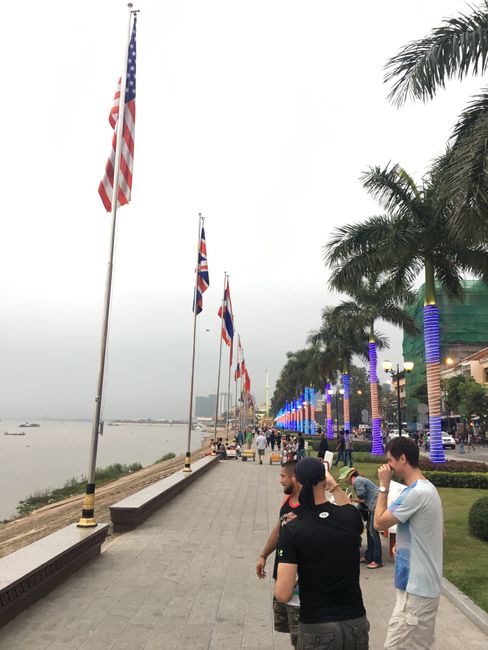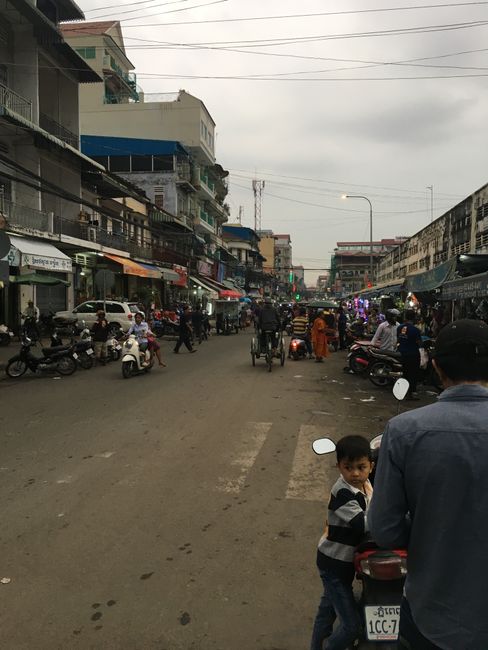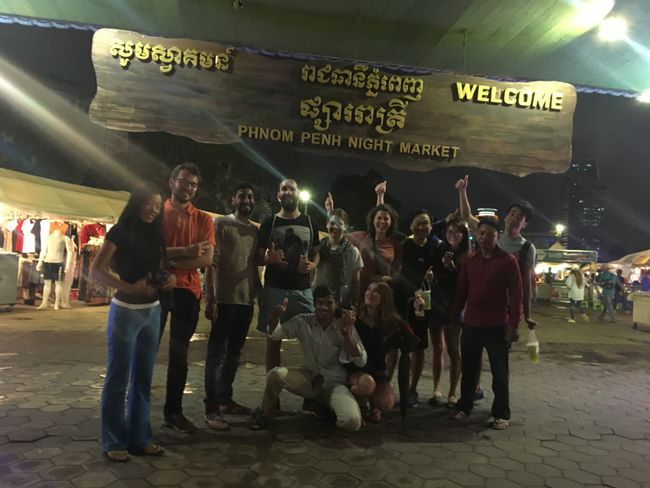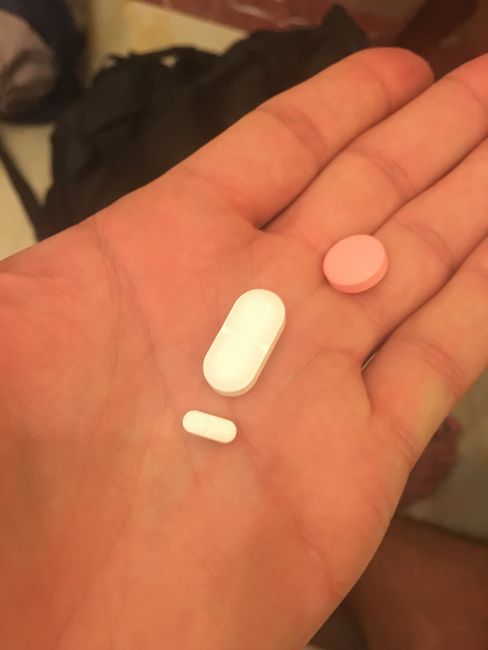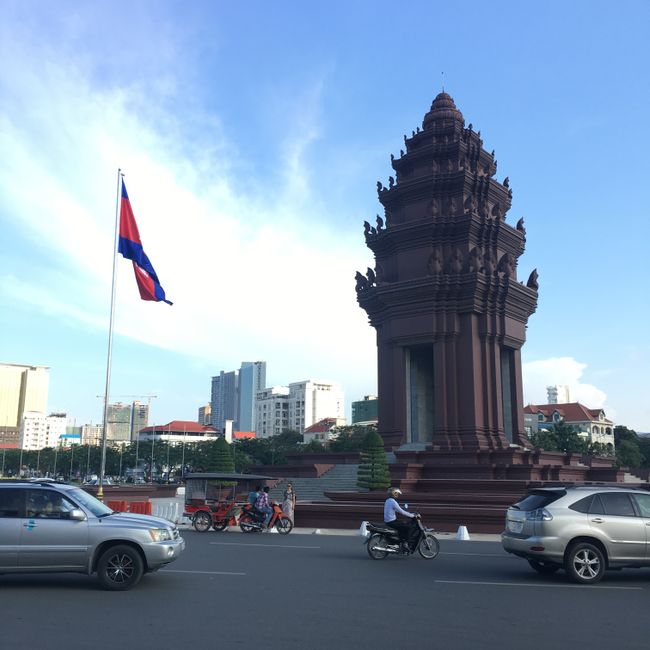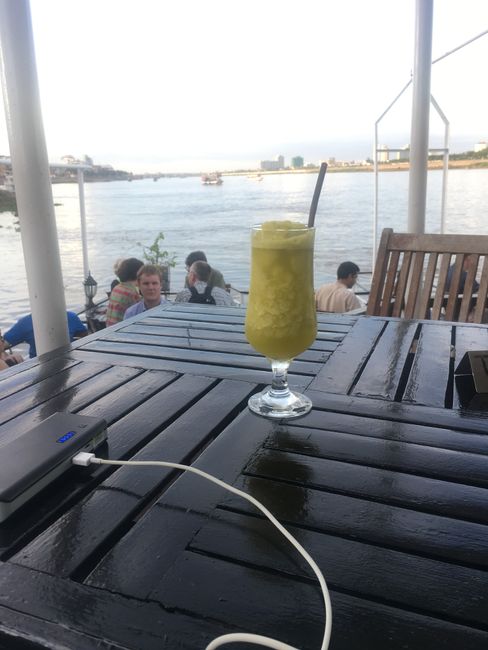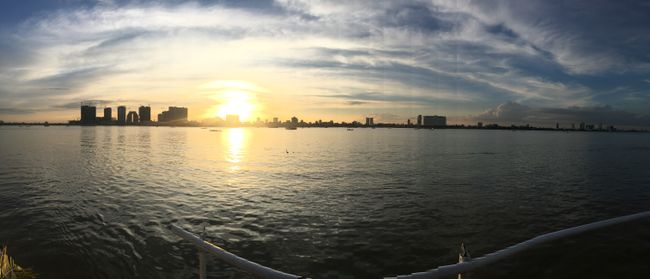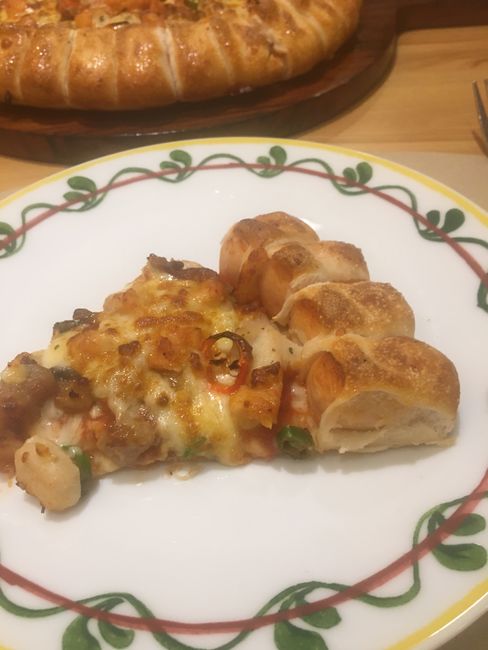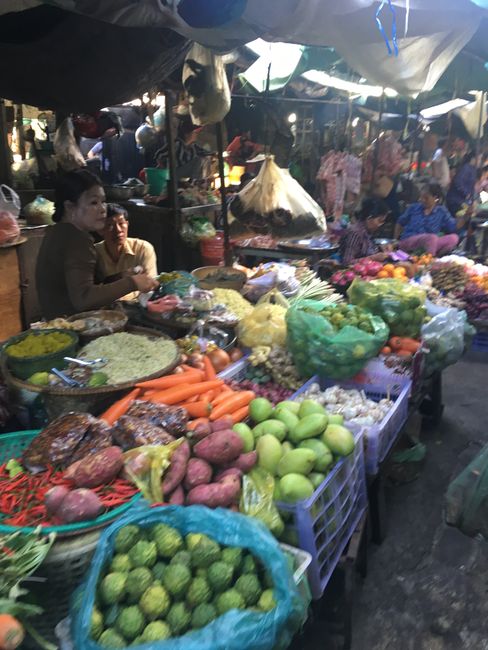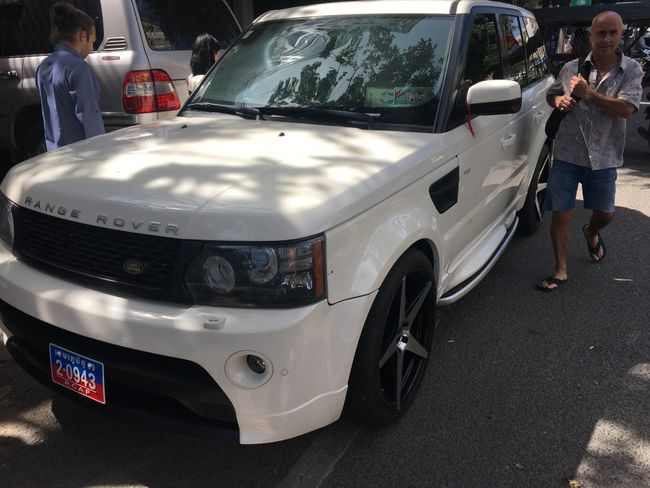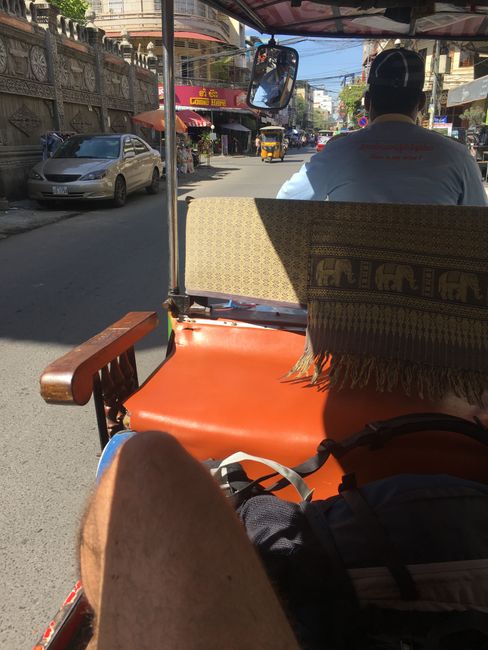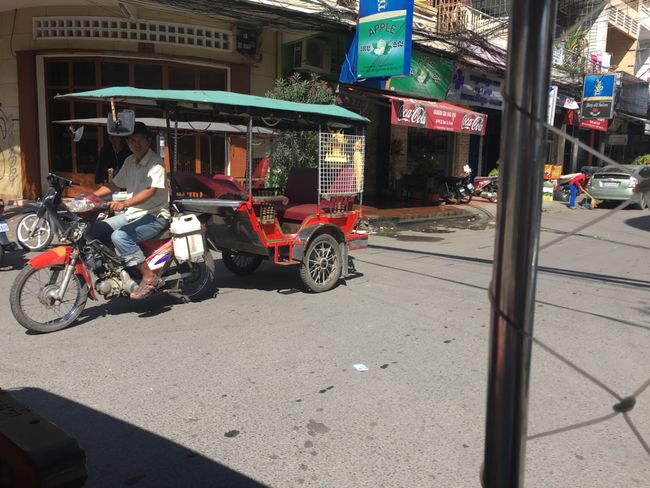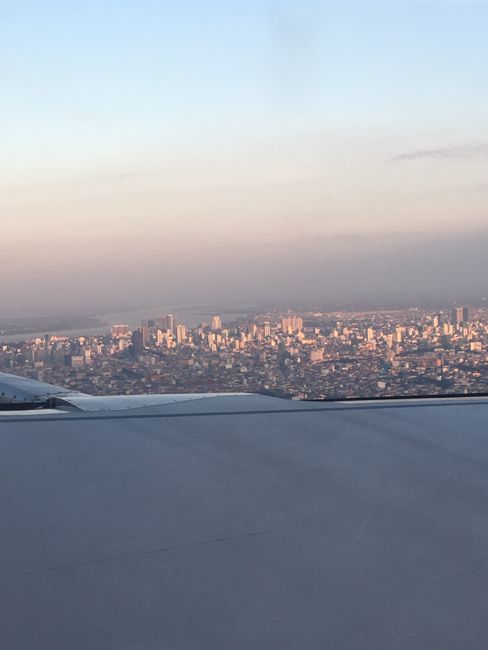Phnom Penh
Gipatik: 08.01.2018
Mag-subscribe sa Newsletter
27.12 to 30.12.2017
On Tuesday around 10 o'clock, I finally arrived in Phnom Penh. The flight was nothing special, and I went to the airport. I was a bit nervous, especially since I had no idea about Cambodia and had only been warned about the police. I didn't have enough money for the visa, so I withdrew 30 US dollars from the ATM. It was my first time using dollars 🤑. I had a passport photo with me, and I was granted a 30-day entry permit. What I didn't know before was that the local currency, the riel, exists but the main currency is the US dollar. Completely exhausted, I met Sylwia at the tourist information office. We chatted and decided to share a tuk-tuk and get a local sim card beforehand. It may not be a bad idea to have a local guide in a country like Cambodia. The tuk-tuk driver advised us to hold onto our luggage during the ride to prevent theft. We started driving and saw dirty streets, poor infrastructure, and a lot of poverty. But we also saw a Lamborghini. I arrived at the hotel feeling completely exhausted, met up with Sylwia in the evening, and checked in. The light bulb in the bathroom broke after 3 minutes. At least there was hot water. My room had no windows, so I laid down. In the evening, I met Sylwia again, and she was accompanied by Klaus, Julian, and Sandra. All German names, but Klaus was from Brazil, Sandra from Sweden, and well, Julian from Swabia. On Klaus' recommendation, we went to a local restaurant and tried typical Cambodian specialties. Amok (cooked fish), Lok Lak (beef cooked with pineapple), and black ants (very crunchy). We shared the dishes and got plenty of refills of Leo beer. The ants weren't bad, but when I started thinking about them, my mouth started to feel itchy and I couldn't take another spoonful. 😄
Afterwards, we went to the Sky Bar Eclipse. The view was pretty cool, even though there were no hotspots in Phnom Penh, except for the few other skyscrapers and the illuminated palm trees along the riverfront.
We agreed to visit the Killing Fields the next morning.
We started by bus at 8:30 am from their hotel. We first visited S-21, the genocide museum. There, the Khmer Rouge, under Pol Pot, tortured thousands of people. They took 750,000 people out of Phnom Penh overnight. They said they could come back in three days, but that was a lie. Anyone who spoke a foreign language, wore glasses, had soft hands, or was, for example, a teacher, judge, or doctor, was tortured. All of this happened in the 1970s. In the torture prison, they were tortured until they said what the torturers wanted to hear. By doing so, they signed their own death sentences and were taken to the killing fields outside the city. When the prison was liberated, the remaining prisoners were stabbed to death so that no one would hear them. The photos of the corpses hung in their cells, which I visited. I listened to an audio guide describing everything. It was very tough.
After having a coffee and a short bus ride, we arrived at the killing fields. This is where all the enemies of the Khmer Rouge were taken and murdered. The paths there lead over the mass graves, and when it rains, bones still emerge, which are then collected. The killing tree was particularly brutal. The audio guide described how the soldiers, who were the first to arrive here after the Khmer Rouge fled, found blood, brain fragments, and hair. Babies and toddlers were smashed against this tree because it was the most effective way. It was brutal. The audio guide also described how there were speakers hanging on this tree, playing propaganda songs to drown out the screams. Finally, I walked through the temple, just 20 centimeters away from the piles of bones in the middle, placed there as a memorial. It was a intense morning. On one hand, it was brutal, but somehow it didn't affect me too much. That would come later.
Back at their hotel, I hung out by the pool with Julian and arranged everything for Hong Kong (hotel and flight). Then we went to the Royal Palace. We thought 10 dollars was too much for a visit, so we took selfies in front of it instead. We had a cola by the riverside in 35 degrees Celsius heat and enjoyed the breeze from the Mekong.
In the evening, we picked up Sylwia, Sandra, and a new Brazilian friend and went to the Central Market. We tried local delicacies and then went to a sky bar. Everything was relaxed, just like the whole week in Phnom Penh. I said goodbye and went home.
Thursday started with a visit to Doctor Lucy. I specifically chose her because I didn't feel confident explaining my ear problems in English. She spoke German. It turned out that she studied in Hanover and even knows someone from Stade who is now a cardiologist. It's a small world 😄. I had not been able to hear for a week, so I had to see a doctor. She examined me and found that I had fluid in my middle ear from diving. My left ear was almost deaf. To check if the inner ear was damaged, she referred me to an audiologist and we made a follow-up appointment for the next day. I walked around observing how Western-looking people were being targeted on scooters, and I don't want to know what they had to pay. She took 2,500 Swiss francs from a friend of mine from Switzerland. But they also caught him with weed. On Friday, I had the hearing test and saw pictures of my middle ear beforehand. Pretty cool. The hearing test revealed a problem with my left ear, but my right ear was fine. When I returned to Dr. Lucy, we discussed the results. She prescribed me antibiotics, painkillers, and other medications. All for one week. No alcohol allowed. I should also avoid listening to music. Just great when New Year's Eve is around the corner 🤦🏻♂️. In the evening, I went on a sunset tour on a boat with relaxing music and a delicious cocktail. The evening was topped off with a huge pizza with sausages in the crust. Pretty awesome.
On Saturday, I tried a French coffee and was supposed to be taken to the airport by a tuk-tuk. Then the clever tuk-tuk driver got out and called his friend. He was already taking two Australians to the airport in his taxi. That way, he avoided the traffic jam and I got in. During the taxi ride, the new driver's phone rang. It was my tuk-tuk driver's friend, and he told me in broken English that I didn't have to pay: the Australians had already taken care of it. He laughed loudly. I laughed along and we continued to the airport. There, I gave an extra 4 dollars due to good manners and got out. Phnom Penh is just as relaxed as the taxi drivers. There is a contrast between the many sports cars of rich foreigners and the poor population that still doesn't know what to do with the increasing number of tourists. I will come back.
P.S. It was only at Dr. Lucy's that I became aware of what happened about 50 years ago at S-21 and the Killing Fields: When the Khmer Rouge suddenly invaded the city, they mainly targeted people with, for example, the following characteristics: well-groomed, soft hands, foreign language speakers, wearing glasses, or those in certain professions, such as lawyers, doctors, and academics.
All characteristics that Dr. Lucy and I both fulfill. When this thought crossed my mind while Dr. Lucy explained the medications to me, a shiver ran down my spine.
Mag-subscribe sa Newsletter
Tubag
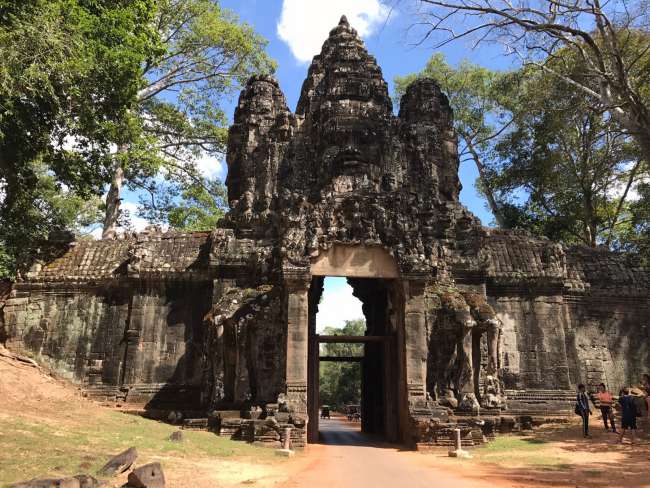
Mga taho sa pagbiyahe Cambodia
